Mark Anthony Neal's Blog, page 696
September 20, 2015
bell hooks and Arthur Jafa Discuss Transgression in Public Spaces
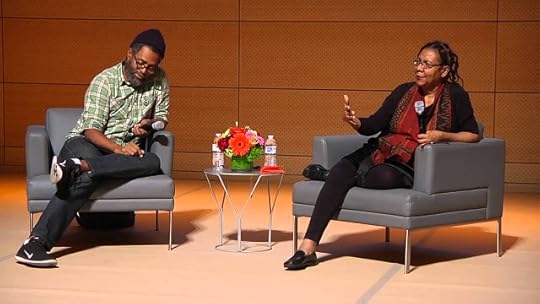 An open conversation about public transgression between bell hooks and Arthur Jafa hosted by Eugene Lang College at The New School for Liberal Arts.
An open conversation about public transgression between bell hooks and Arthur Jafa hosted by Eugene Lang College at The New School for Liberal Arts.
Published on September 20, 2015 06:20
Chimamanda Adichie & Zadie Smith on Race, Writing, & Relationships
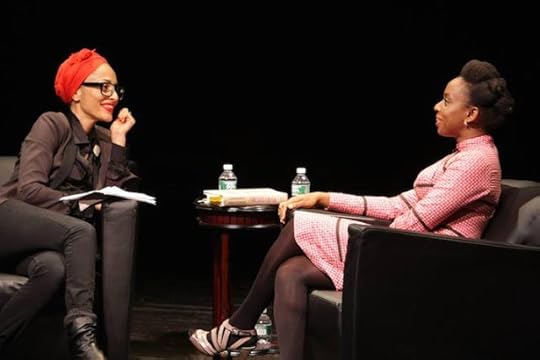 'On the heels of the blockbuster success of her latest novel, Americanah, Chimamanda Adichie sat down with Zadie Smith at NYPL’s Schomburg Center for Research in Black Culture to discuss the critically acclaimed book and how it came to be. In their far-reaching conversation, Adichie and Smith talk about race, feminism, and finding one’s identity in a globalized world.'
'On the heels of the blockbuster success of her latest novel, Americanah, Chimamanda Adichie sat down with Zadie Smith at NYPL’s Schomburg Center for Research in Black Culture to discuss the critically acclaimed book and how it came to be. In their far-reaching conversation, Adichie and Smith talk about race, feminism, and finding one’s identity in a globalized world.'
Published on September 20, 2015 04:32
September 19, 2015
Sudanese American Parents Look at Ahmed Mohamed and Think of Their Own Children
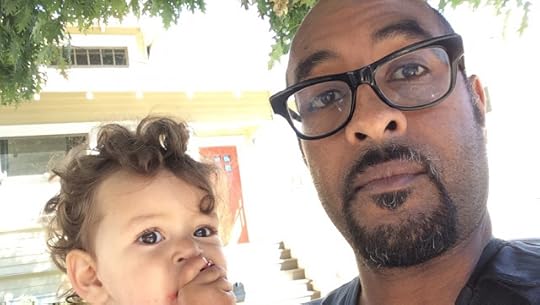 'Motasim Elhassan is a Sudanese American semiconductor engineer in Sacramento. Elhassan says he cried when he first heard the news about the Sudanese American teenager in Texas, Ahmed Mohamed, who was detained for bringing a digital clock he made to school.' --
PRI
'Motasim Elhassan is a Sudanese American semiconductor engineer in Sacramento. Elhassan says he cried when he first heard the news about the Sudanese American teenager in Texas, Ahmed Mohamed, who was detained for bringing a digital clock he made to school.' --
PRI
Published on September 19, 2015 19:55
Is 'Empire' Is 'On The Crest Of A Wave Of Change'?
 'Empire — a drama about an African-American family, a rare thing on broadcast TV — has had stellar ratings. As Season 2 begins, Ilene Chaiken talks about entertainment value and cultural impact.' -- NPR
'Empire — a drama about an African-American family, a rare thing on broadcast TV — has had stellar ratings. As Season 2 begins, Ilene Chaiken talks about entertainment value and cultural impact.' -- NPR
Published on September 19, 2015 19:47
The Global African: The George Jackson Mixtape & Deportations in the Dominican Republic
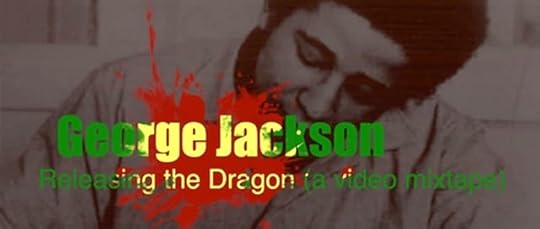 'A new mixtape looks at the life and ideas of black revolutionary George Jackson. Who was George Jackson, what did he stand for, and what did the creators of the mixtape hope to achieve?
+The Global African
host Bill Fletcher explores Jackson's legacy as well as the mass deportations that are underway in the Dominican Republic with
The Real News Network
producer
Jared Ball
, filmmaker
Bashi Rose
, and Lauren Stewart.'
'A new mixtape looks at the life and ideas of black revolutionary George Jackson. Who was George Jackson, what did he stand for, and what did the creators of the mixtape hope to achieve?
+The Global African
host Bill Fletcher explores Jackson's legacy as well as the mass deportations that are underway in the Dominican Republic with
The Real News Network
producer
Jared Ball
, filmmaker
Bashi Rose
, and Lauren Stewart.'
Published on September 19, 2015 15:36
"Warriors Come Out and Play": Why The Warriors Returned to Coney Island
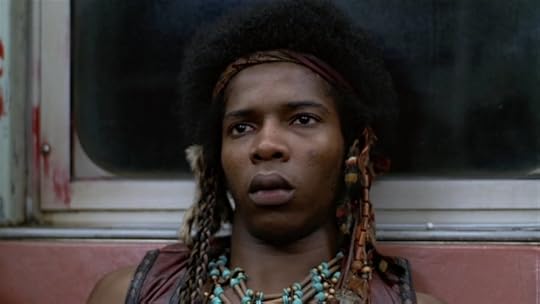 'Actor David "Cochise" Harris joins Shad to look back on cult classic The Warriors (1979) and how the groundbreaking film changed the image of gangs in pop culture. He also shares behind-the-scenes stories — including tensions between actors and real gang members — and argues that the film should never be remade." --
q with Shad
'Actor David "Cochise" Harris joins Shad to look back on cult classic The Warriors (1979) and how the groundbreaking film changed the image of gangs in pop culture. He also shares behind-the-scenes stories — including tensions between actors and real gang members — and argues that the film should never be remade." --
q with Shad
Published on September 19, 2015 13:56
“I am too blessed to be stressed”: Three (More) Black Christian Clichés That Must Go
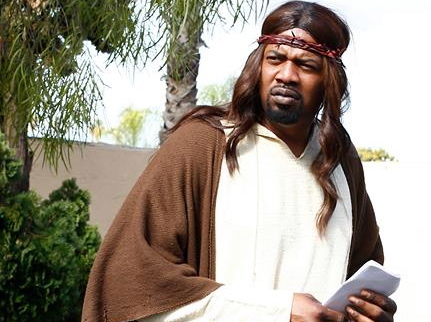 “I am too blessed to be stressed”: Three (More) Black Christian Clichés That Must Goby Marcus T. McCullough + Lawrence Ware | NewBlackMan (in Exile)
“I am too blessed to be stressed”: Three (More) Black Christian Clichés That Must Goby Marcus T. McCullough + Lawrence Ware | NewBlackMan (in Exile)Problematic clichés abound in Christianity. Yet, since we were reared in and serve Black churches, we are concerned about the ones that circulate in Black-American Christianity. Our previous article about problematic clichés in Black churches was widely discussed and debated. One of our mothers said we went too far. Well, we are back with three more. The work needs to be done.
“I am too blessed to be stressed”
This statement is not often given in worship, but nonetheless, it’s a popular one in Black churches. In American culture, a question that often accompanies greetings (or serves as the greeting itself) is, “How are you?” And when Black Christians greet each other in this way, someone may likely answer, “I am too blessed to be stressed.” (Not unrelated is the response, “I’m blessed.”) Though the latter is marginally irritating, “I am too blessed to be stressed” is especially problematic.
At the most basic level, neither response does a good job of answering the question “How are you doing?” That, by itself, is annoying, but to say “I am too blessed to be stressed” establishes a dangerous understanding: to be blessed is to not be stressed, and conversely (as logic would allow), to be stressed is to not be blessed. In other words, this statement presents these two existential states as mutually exclusive polar opposites. Aside from being untrue, such an understanding is dangerous and, dare we say, un-Christian.
The idea that being blessed means one won’t be stressed (along with its converse that being stressed means one isn’t blessed) undercuts scriptural points and the providence of God (both of which are significant in Black-Christian contexts). In The Bible, the most blessed figures were notably stressed. Such figures include David, Moses, and Jesus the Nazarene. The Holy Writs make it very clear that these people were both very blessed and, at times, very stressed. The Psalms, the Gospels, the Torah, the Letters, yea an array of scriptures teach that being stressed doesn’t mean one isn’t blessed.
Most poignantly, the most blessed human being to ever live—Jesus the Nazarene, regarded as our Christ—was so stressed that “his sweat became like drops of blood” in the garden named Gethsemane (Matthew 26:38). His stressing never eliminated his blessing, and his blessing never canceled his stressing. So, then, when you use this response, what are you really saying?
If, however, you truly believe that you are “too blessed to be stressed,” we would like to congratulate you for having reached a spiritual level greater than that of David, Moses, and even Jesus the Christ.
Yeah. You just superseded Jesus. Congrats.
“If He did it for me, He will do it for you”
Heard in gospel music, this phrase is also heard in worship contexts. It is intended to encourage hearers to remember the capabilities and goodness of God. It typically follows a story about what God is believed to have done in the life of the speaker, particularly if that person was faced with something that seemed, to them, impossible to address. The aim of this sharing is to profess that God intervened positively on their behalf—that is, God “made a way out of no way.” The speaker shares their story and closes with this cliché with the best of intentions: to encourage hearers by letting them know that God will also intervene positively for them.
This is, however, precisely where a problem arises. As far as this statement is meant to remind the faithful of what God can do, we are inclined to agree. As far as this statement posits what God will do, we strongly disagree. Who is anyone to say what God will do? What about the particularities that make the speaker’s situation different than those of the faithful listening in? And what, what, pray tell, serves to guarantee that what God did for one person, God will do for another? Does this not put God into a box? Does this not decline God of some agency? Does this matter to us?
Primarily, such a cliché often lifts up the “successful” cases of God’s intervention while pushing aside the “unsuccessful” cases and backhanding those of the latter situations in the face. Imagine this: “I was told I could never conceive children, but the Devil is a liar! I now have a child. God did it! And if He did it for me, I know He will do it for you.” …yikes. Score one for the mother, sure, but score negative three-thousand-plus for all the faithful want-to-be mothers in the room, let alone the infertile women (and, lest we forget, the infertile men). You can substitute other events ranging from bouts with cancer to picking a winning lottery ticket and much in between.
To say that God will do something may leave many wondering when what you promised doesn’t come to pass. Either God is not as good and/or powerful as we have proclaimed, or something about them is wrong—perhaps to the point that they believe they are undeserving of such divine kindness. That, among other concerns, is highly problematic. As if this weren’t bad enough, heap on top of that the reality that such a phrase serves to retain a solely-masculine presentation of God, which is woefully problematic on its own. In this case, the cake and the frosting are both deadly, and we serve them together in gluttonous slices.
If you desire to share what you believe God has done good for you or someone you know, that is commendable, but make sure you aren’t shaming others or trying to dictate what God will do with your words. Leave this phrase off your testimony, and not only will God be praised, but others will be spared from cowering in shame.
“Taking Back what the Devil Stole”
This cliché was popularized in the Hezekiah Walker song “Faithful is Our God.” We will have to fully unpack the chorus of the song in order to get at the heart of why the phrase is so problematic. Gospel songwriters are notorious for penning songs laced with problematic theology, but this one is nearly unforgivable. In the song, the choir sings:
I’m reaping the harvest God promised meTake back what the Devil stole from meAnd I rejoice today, for I shall recover it all
Now, we need to talk about this cliché for a few key reasons. Apparently, the motivation behind the rejoicing mentioned above is the recovery of goods that have been stolen by the Devil. Similar to the aforementioned “when praises go up, blessings come down,” the motivation for the praise is the accumulation of possessions. It is not the reality and presence of God.
We could, in addition, completely mess with your head by posting a link to a coherent, convincing argument against the existence of the Devil, but we won’t do you like that. Let us just say that the amount of time and attention given to a figure colloquially called “the Devil” is disproportionate to the influence mainstream theological reflection and biblical criticism says such a being possesses. Why is this important? Because we should be careful not to talk about the Devil in the same manner we talk about God, lest we intellectually bequeath to him the omnipotence reserved for the Most High alone. We unknowingly do this a lot in our churches.
Most notably, such a cliché allows us to continue placing blame upon the Devil that should be placed elsewhere. If you believe in evil and demonic forces, alright; but if that is what you blame every malady and problem on, we’ve just run into a problem. Perhaps it wasn’t the Devil that stole your “harvest” but rather it’s been economic exploitation in a capitalistic system grounded in white supremacy. Or perhaps it was fiscal irresponsibility grounded in a desire to buy things you don’t need with money you don’t have to impress people who will probably dislike you anyway. Maybe it’s even your poor health and lifestyle choices, like refusing to seek counseling and instead “amen-ing” every time someone speaks of the Devil “trying to steal your joy.” Either way, it’s likely not the Devil… it may be you, it may be our flawed society. Drop this cliché and instead take some responsibility for changing your life and the society it’s in.
Make no mistake, we love Black churches and the culture therein. In fact, we love them so much that we are willing to tell them the truth—even when it makes the cliché-loving parishioners uncomfortable. This is needed work we are doing. And fret not: we are not done. There is more to come.
Sorry, Mom.
+++
Marcus T. McCullough holds degrees in religion, divinity, and sacred theology from Morehouse College, Harvard Divinity School, and Boston University School of Theology, respectively. He is an ordained AME minister and hospital chaplain. His hometown is Seattle, WA.
Lawrence Ware is a professor of philosophy and diversity coordinator for Oklahoma State University’s Ethics Center. A frequent contributor to the publication The Democratic Left and contributing editor of the progressive publication RS: The Religious Left, he has also been a commentator on race for the HuffPost Live, CNN, and NPR.
Published on September 19, 2015 04:20
September 18, 2015
Project Bronx: To Be Black and Boricua
 'La Respusta Magazine
& Adam Levine-Peres host of +ProjectBronx teamed up at the
Afro-Latino Festival
to ask folks about what it's like to be Black and Boricua.'
'La Respusta Magazine
& Adam Levine-Peres host of +ProjectBronx teamed up at the
Afro-Latino Festival
to ask folks about what it's like to be Black and Boricua.'
Published on September 18, 2015 20:55
PBS NewsHour: Baratunde Thurston on Fighting Racist Absurdity with Humor
 'When you're the one black friend, says Baratunde Thurston, you're kind of like a double agent trying to prevent thermonuclear war. The former Onion digital director, Daily Show producer and author of How to Be Black, gives his Brief but Spectacular take on humor as a tool for overcoming racism.'-- +PBS NewsHour
'When you're the one black friend, says Baratunde Thurston, you're kind of like a double agent trying to prevent thermonuclear war. The former Onion digital director, Daily Show producer and author of How to Be Black, gives his Brief but Spectacular take on humor as a tool for overcoming racism.'-- +PBS NewsHour
Published on September 18, 2015 20:48
Black Lives, Atticus Finch, and the Ethics of Legal Fictions
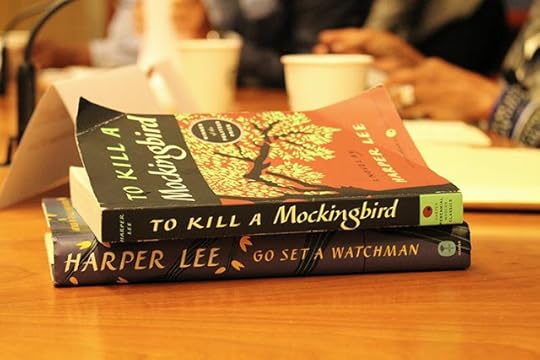 'A discussion with Professors Katharine Bartlett and Karla Holloway, based on the controversy surrounding the novels Go Set A Watchman and To Kill a Mockingbird. Moderated by Marcus Benning (Black Law Students Association) and Henry Washington (Black Student Alliance), the discussion explores such questions as: Who is Atticus Finch? What does "he" owe us? What, if anything, does the controversial sequel reveal, teach, or reflect about race in our culture and legal system? What, if anything, does it say about the law, ethics, and politics of Black Lives Matter?' -- +Duke University School of Law
'A discussion with Professors Katharine Bartlett and Karla Holloway, based on the controversy surrounding the novels Go Set A Watchman and To Kill a Mockingbird. Moderated by Marcus Benning (Black Law Students Association) and Henry Washington (Black Student Alliance), the discussion explores such questions as: Who is Atticus Finch? What does "he" owe us? What, if anything, does the controversial sequel reveal, teach, or reflect about race in our culture and legal system? What, if anything, does it say about the law, ethics, and politics of Black Lives Matter?' -- +Duke University School of Law
Published on September 18, 2015 20:31
Mark Anthony Neal's Blog
- Mark Anthony Neal's profile
- 30 followers
Mark Anthony Neal isn't a Goodreads Author
(yet),
but they
do have a blog,
so here are some recent posts imported from
their feed.



